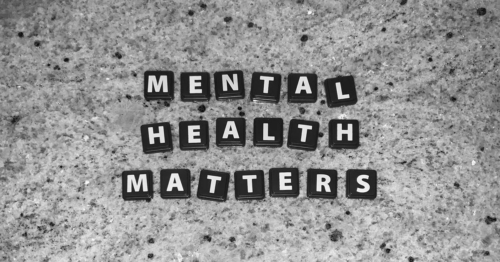
Table of Contents
When Self-Hatred Is a Mental Health Concern, According to Therapists

Written By: Alex Bachert, MPH

Clinically Reviewed By: Clary Figueroa
November 21, 2024
4 min.
Mental and behavioral health conditions such as eating disorders, anxiety disorders, and substance use disorders can cause feelings of self-hatred.
Learn more about our Clinical Review Process
Table of Contents
We are our home, with our mind and body allowing us to exist day-to-day. We are the source of our wildest dreams and deepest desires, our brightest moments and cleverest ideas. We are our one companion through all the good and bad moments of this life. Yet, there are times when we hate ourselves, with negative thinking creeping in as you hear your brain say: “I hate myself.” If you keep wondering “why do I hate myself,” read on for expert opinions from licensed mental health professionals — and get ideas for how to cope with these feelings.

We’re here for you
Virtual, supportive therapy from the comfort of home.
Common causes of self-hatred
Sometimes, feelings of self-hatred might come from a clear source, like thinking you’ve done something wrong or hurt someone. But, other times, the feeling of hating yourself comes seemingly out of nowhere, hitting you with surprise and force. Here are some common causes of feeling like you hate yourself, according to therapists.
1. Personal misalignment
In some instances, feeling like you hate yourself might actually represent a personal misalignment. “When someone has feelings of hating themselves, this can stem, in my view, from them not living an authentic life,” says Charlie Health Primary Therapist Alysson Thewes, LCSW. “Maybe they are keeping a big, big secret, or they have been lying about who they are, or what their values and opinions actually are, to the people in their life.”
2. Childhood trauma or negative childhood experiences
Hating yourself can also stem from things you’ve been told about yourself or experiences you’ve had as a child. As Thewes explains, it might result from an abusive childhood — whether that be emotional, physical, sexual, or otherwise — during which you were degraded, told that you were worthless or hated, and treated as anything other than the whole, worthwhile person you are. These feelings of shame and guilt can stick with you. You could have taken what the adults in your life said and, understandably, turned it into a negative understanding of yourself and the world as you grew older.
3. Mental health conditions
Hating yourself can also be indicative of a mental health condition. A licensed mental health professional can also tell you whether you meet the criteria for a mental health disorder. According to Senior Primary Therapist Sarah Lyter, LCPC, MA, mental health disorders that can lead to feelings of hating yourself include:
- Depression
- Anxiety
- Post-traumatic stress disorder (PTSD)
- Personality disorders including borderline personality disorder
- Eating disorders
- Substance use disorders
- Obsessive-compulsive disorder
Charlie Health Experiential Therapist Julie Eggleston, MS, CTRS adds that a mental health disorder can still lead to these negative feelings of hating yourself, even if it’s not actually a symptom. “I feel that any mental condition can have a symptom of self-hate because of [it causing] behaviors that someone doesn’t like or the actions that occur. The guilt of letting people down, letting themselves down, is a tough one,” she says.
If your negative thought patterns become suicidal thoughts this is a mental health emergency. Contact The Suicide & Crisis Lifeline 24/7 by calling or texting 988.

How to figure out what is causing your feelings of self-hatred
According to Lyter, one of the best things you can do to figure out what is causing these feelings is employ some serious self-observation to see when they’re occurring and in what context.
“Identifying if there are any additional symptoms can help to identify if self-hatred is isolated or may be part of a bigger mental health concern,” she adds. “Assessing the severity to determine how much self-hatred is impacting your life and your functioning is also important. Notice your patterns of thinking and if these thoughts are circumstantial or are happening more pervasively.” Your loved ones or a therapist can provide a great sounding board for sorting through how you feel and how to proceed.
How to cope with feelings of self-hatred
It’s easy to feel frustrated or stuck within your mind and experience self-loathing or hatred as a result. Learning coping mechanisms and working with a mental health professional can assist in each of these areas and reduce feelings of hating yourself.
The best coping techniques will vary based on your situation, the mental health disorder you live with, and what type of therapy you do. For example, if you experienced abuse as a young person, then eye movement desensitization and reprocessing (EMDR) might be the technique for you. It helps with accessing trauma and its corresponding memories in a safe space and then reprocessing and healing from them.
A therapist can also support you in exploring negative thoughts, along with self-esteem and confidence-building techniques. These methods include creating positive affirmations for yourself and practicing self-compassion.

How Charlie Health can help
If negative thinking or your inner critic is getting in the way of your overall happiness and well-being, Charlie Health can help. Charlie Health’s virtual Intensive Outpatient Program (IOP) provides mental health treatment for people dealing with serious mental health conditions, including anxiety, depression, and more. Our expert clinicians incorporate evidence-based therapies into individual counseling, family therapy, and group sessions to make managing your mental health possible. Fill out the form below or give us a call to start healing today.




